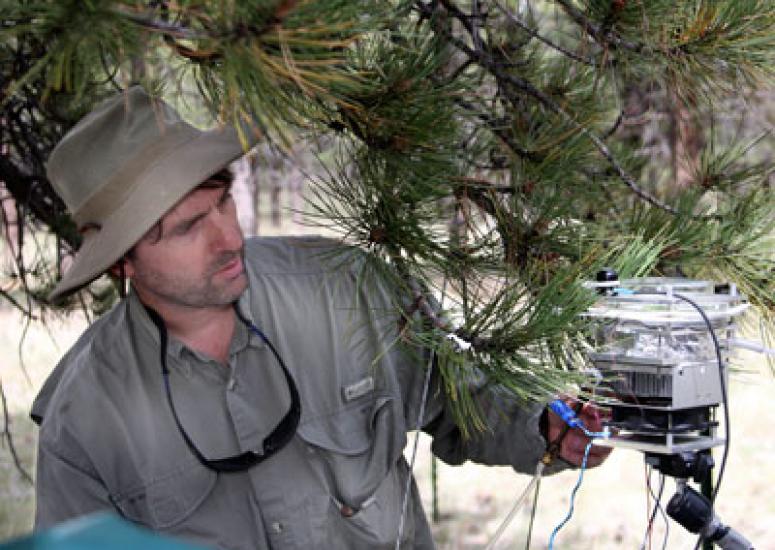-
Dengue fever heads north
Research by NCAR scientist Mary Hayden underscores the risk of dengue fever and the growing threat of dengue hemorrhagic fever in the Rio Grande Valley between far south Texas and northeast Mexico.
- Climate
-
Between air and sea
NCAR scientists Bill Large and Steve Yeager have produced a new analysis of the exchanges of heat, momentum, and moisture between the oceans and atmosphere that should help climate modelers better assess variability on several time scales.
- Climate
-

International field campaign examines impact of beetle kill on Rocky Mountain weather and air quality
Mountain pine beetles appear to be doing more than killing large swaths of forests in the Rocky Mountains. Scientists suspect they are also altering local weather patterns and air quality.
- Air Quality,
- Weather
-
Down-to-earth predictions
In a potential boon for agriculture, a NASA-funded effort that involves NCAR and the private firm DTN/Meteorlogix has produced one of the world’s most accurate systems for predicting soil temperature up to two days in advance.
-
Ozone and the “weekend effect”
Research from MIRAGE (Megacities Impacts on Regional and Global Environments), a field campaign held in Mexico City in 2006, is coming to fruition as scientists begin to publish their findings. A new paper details the ozone “weekend effect” in Mexico City and its implications for local air pollution.
- Air Quality

